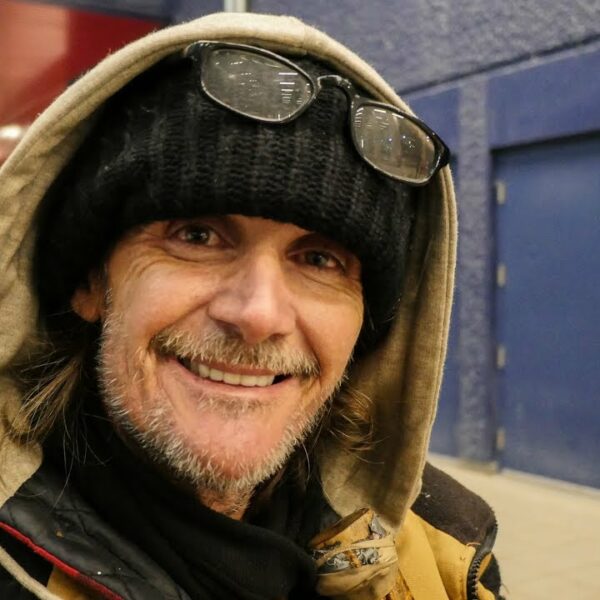This is 2019. It is a barrage of technological advancements and individual losses. It’s a whirlwind of inflated wealth and extreme poverty. It is a time when ambitious startups are introducing autonomous vehicles in cities where families below the poverty threshold attempt to survive without electricity and running water.
Here we are in the future and it is turning out to be every bit as dystopian and awe-inspiring as we expected – an era founded on both innovation and despair.
Bring on the Robots. Are They Friend or Foe?
Artificial intelligence has already replaced millions of jobs. Many experts claim that even some of the safest seeming occupations could show humans replaced by machines sooner rather than later. Optimists say AI will create a more relaxed, enjoyable atmosphere where work weeks are shorter, and humans have more free time than ever. Skeptics foresee economic collapse, a world of haves and have-nots where poverty exists without a safety net.
One Thing Is Certain. Job Loss and Wage Cuts that Result from Automation Do Give Way to Homelessness.
At this point, we are simply not creating more reliable jobs than we are replacing with robotic assistance. The end result, for workers in businesses that are turning to automation, is long-term unemployment, significant and lasting wage declines, and the inevitable poverty that coincides. At the same time, amid the many innovations, housing prices are soaring to all-time highs.
This catastrophic combination equals what the politicians are calling a housing crisis. In reality, it is a homelessness crisis, striking without warning, taking down unsuspecting citizens at random like a cyclone. From families to senior citizens, from school children to twenty-something college grads. Nobody is safe. With the looming threat of automation potentially causing more chaos, some politicians have discussed the concept of a Universal Basic Income.
UBI: What is This Concept and Where Does it Come From?
Universal Basic Income is a somewhat flexible construct with slight variances on the definition, which is part of the problem the program presents. Nobody can decide on exactly what it is. Many have conflicting ideas about what it should be. That said, all definitions of UBI are rooted in a system of supplemental income for all. It’s a sort of starting point or safety net wherein the government provides its citizens with enough supplemental funding for their basic needs.
Here’s where things get tricky. The universal definition of basic needs also varies significantly. Depending on which politician has the podium, basic needs could be seen as anything from food, clothing, and shelter, to just life, liberty, and the pursuit of happiness.
The latter, one of the Founding Fathers’ most famous phrases, is actually a carefully worded clause that intentionally leaves much room for debate. In earlier drafts of the Declaration of Independence, the word happiness was replaced with the word property. Some historians argue that Thomas Jefferson swapped it to support the abolition of American slavery since, at the time, some human beings were sadly still considered “property.”
Still, other historians allude to the idea that the clause was altered to deny Native Americans the right to pursue their own property. (i.e. The billions of acres that comprise the landscape of the region we now refer to as the United States). What can be concluded is that happiness is considerably more ambiguous than a term like property. This makes the “right” to it something that is both difficult to demand in a real-life situation, and even harder to supply.
In a similar vein, lies the concept of Universal Basic Income. In theory, the idea is that everyone would be given enough money to live. The problem is that ideology brings forth a mind-bending concept, which is… What is life? And how much funding is sufficient to sustain it?
From a historical perspective, multiple variations of Universal Basic Income have emerged over the past few centuries. One of the most famous examples was American intellectual Thomas Paine’s proposition. Influenced by Iroquois traditions, Paine proposed a national fund for every individual age 21 and older. Coincidentally, his reasoning was similar to what we have today, a revolution of what Paine coined “human intervention,” which was essentially technology replacing people’s jobs.
Who Supports Universal Basic Income?
In terms of political support, this particular concept is largely backed by democratic candidates like Senator Bernie Sanders and Democratic presidential hopeful Andrew Yang. Among the general population, supporters and opposers are almost equally split down the middle. Many admit they just don’t see the difference between UBI and current government welfare programs. Common concerns about the program include:
- Questions as to whether it will replace current government funding
- Debates pertaining to where these funds will come from
- Concerns about whether the program will encourage laziness across the nation
And, probably the most legitimate concern to date:
- Will the Universal Basic Income be enough money to live on?
That last question is key. If we are to accept robots as replacements for humans in the workforce, we must ensure that this safety net will serve its purpose. As the matter stands today, the most quoted number for Universal Basic Income is approximately $1,000 per month. This amount would put all unemployed Americans just below the median national poverty line of $12,490 per year. This salary has already caused rampant homelessness as well as severe rent burden across the board. If UBI is going to stand in, even as a safety net, we must do better. Either raise the wage or lower the rent/mortgage payments.
As of late, more than 42 million Americans live crippled by poverty. Of them, approximately half a million wind up homeless on a daily basis. Talk to your local representatives about job loss, rent increases, automation, and their thoughts regarding Universal Basic Incomes. Perhaps together, we can implement the best possible programs for a brighter future.













